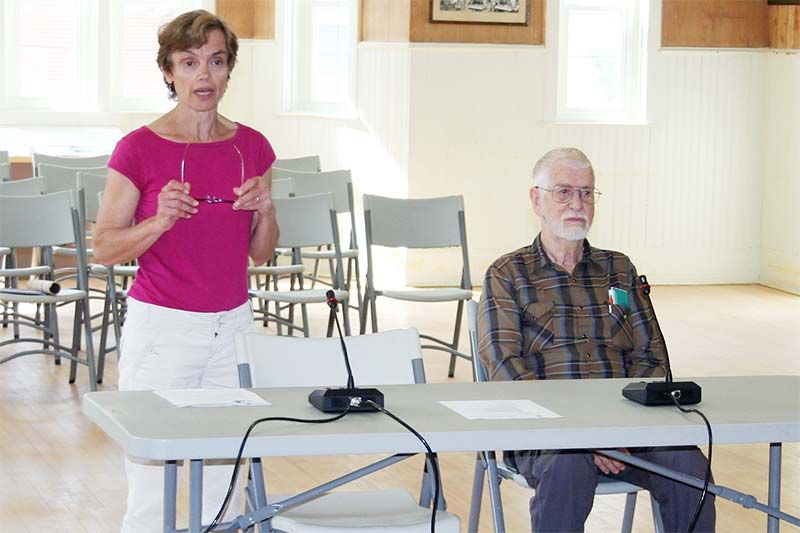Craig Bakay | Jun 22, 2017
“We’re not here looking for money, we’re looking for ways we can help municipalities,” Susan Moore, president of the Friends of the Salmon River told North Frontenac and Central Frontenac Councils recently. Moore and FSR founder/environmental scientist Gray Merriam have been on a mini-tour of watershed municipalities spreading their gospel and offering their assistance in whatever capacity deemed necessary.
“We got a $200,000 grant from Environment Canada for studies that looked at 11 variables,” Moore said. “We didn’t find any problems.”
She then turned the mike over to Merriam.
“From its headwaters in North Frontenac and area, the Salmon River dumps into the Bay of Quinte (at Shannonville),” Merriam said. “We did studies (and) there are places that need work (but) it turns out not many and those are all in the south in areas of intense agriculture.”
And there’s the rub.
“You can’t stir the public to fix something that doesn’t need fixing,” he said. “So we’re trying to encourage people to look after what’s there.
“If you allow it, this could become another Muskoka, a string of time-shares. Lay claim to the riches you have here.”
Merriam urged councils to engage in regional planning and to share information through public meetings, watershed tours, maps, reports, signage.
To that end, the FSR has already published the Salmon River Habitat Strategy and a book, The Salmon River — Jewel of Eastern Ontario.
“Talk to your taxpayers and offer us (FSR) as slaves to do some of the work,” he said. “This land is not ordinary, it’s special.
“I can eat breakfast and watch mink or otter out my window.
“Offer that to people from Western Europe and see what they’d pay for it.”
Merriam also extended his advice to lake stewardship.
“Lake capacity is a ’70s model that’s based on phosphorus,” he said. “That’s rapidly becoming outdated by improved septic systems that deal with phosphorus.
“(But) human activity on a lake can’t be dealt with by shoreline management.
“A lot of lakes have reached their capacity through the music of boom boxes, not phosphorus.”
For their part, the councils were quite receptive to the FSR’s message.
“We’ll never become another Muskoka,” vowed North Frontenac Mayor Ron Higgins.
“We should do this (meet with FSR representatives) every year,” said Central Frontenac Mayor Frances Smith.
Merriam even had an answer to Coun. Tom Dewey’s question about how to handle “beaver problems.”
“From the beavers’ point of view, they’re doing just fine,” Merriam said.
More Stories
- Province clarifies stance - Says Private Well Water Testing Will Continue
- Frontenac County Stays Internal for CAO - Appoints Kevin Farrell
- Addington Highlands Tax Bill Going Up 6.93%
- Perth Road United Church Donation to The Grace Centre
- 21 Years Of Dump Life Left At South Frontenac Waste Site
- Eclipse 2024 – Once In A Lifetime
- National Tourism Week
- NeLL Spring Open House and Anniversary Concert
- 25 years at Bishop Lake Outdoor Centre
- Grounds Contracts Down, Custodial Contracts Up In Central Frontenac
